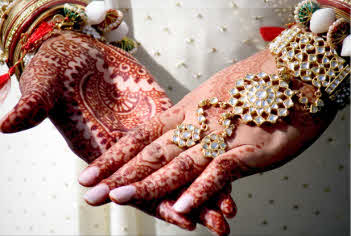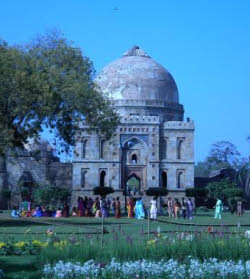by Vani Viswanathan
[box]Vani Viswanathan talks about how living abroad enabled her to learn more about her home country. [/box]Six years ago, when I left the Indian shores to study in Singapore, I was met with a wide variety of ideas about India – some shocking, some outright funny, some thought-provoking. Some made me wonder how less of the real India has actually reached outside of the country, while others – probably inspired by Bollywood – made me roll my eyes. At the same time, these questions made me realise something about India I’d have taken for granted otherwise.
First off, would be the favourite ‘arranged marriage’ question. A number of locals gingerly asked if I was already betrothed to someone. Shocked (I was 17, after all, city-bred with educated parents), ‘No!’ I’d respond, wondering what on earth put this idea in their heads (until I learnt that in Chinese culture, ‘arranged’ meant it was fixed when you were a child that you were to marry this person). And then they would ask how on earth arranged marriages even worked – how could one make a decision about who to live with for the rest of their lives in a matter of a few days?! Did parents actually compare horoscopes for compatibility? Oh, and did the girl’s parents have to pay dowry that the father struggles to pull together? Were many girls actually married off even before they turned 18? What about singing and dancing at the wedding?
Second was the fact that I was vegetarian. ‘Have you never had meat?’ they would ask, with wide-eyed wonder. ‘Never felt like tasting it?’ I would politely shake my head no, choosing not to explain that to me the very concept of eating meat was outright discomforting. In fact, I used to confidently say, more than half my country is vegetarian (never mind what I based this assumption on). I struggled to understand why many of them assumed that I could tell pork from beef, or where chicken nuggets come from (err… chicken?).
There were so many other questions, ranging from corruption to the state of women in the society, to press freedom, to ‘eve teasing’ (I learnt that this – contrary to my assumption – was a uniquely Indian term, and probably a uniquely Indian characteristic!), to why many Indians spoke with each other in English, why some Indians are dark and some fair, or the importance of song and dance in our lives.
Within a couple of years, I realized that the vague answers I had been giving till then were not quite true – I didn’t know what the answers were. Granted I had left the country as but a teenager with hardly any exposure to the actual, outside world – of course, we knew there were poor people; we knew there was corruption; we knew of child marriage and dowry deaths; we knew that Pizza Hut served vegetarian and non-vegetarian pizzas in the same building, but that was all. Coming abroad and mixing with the people here, however, was strangely, a homecoming for me about India. I learnt to distinguish the many tiers present in India. It was as if I was peeling off layers and at each stage, there was a different part of India that I never realized existed. It was interesting that within each layer, there was a beautiful process that also had a less beautiful side to it. Underlying all these discoveries was the dawning of the fact that we are a country of contradictions.
New mothers put brakes on their career for their children; and yet, the society doesn’t look upon them kindly if they do want to continue with their career a few months after. We beautifully coexist with people belonging to various faiths, coming from different regions, speaking different languages, and share food and gossip, and yet we slit each others’ throats in the name of religion. Ours is a country that has welcomed invaders with open arms, taken their cultures and made it its own, and yet we have self-appointed bastions of ‘Indian culture’ rioting about clubs, Valentine’s Day, or a plainly social activity such as drinking and dancing. We place immense importance on loving and taking care of our parents, and yet the wife has to place her husband’s parents first before her own.
Living abroad, I learnt that other cultures were more forgiving; mothers could return to work entrusting their child with a maid, and no one would fault them for being any less a mother to the child. Weddings are rarely as extravagant as Indian weddings, for they are paid for by the bride and the groom, who choose how they want to spend keeping their future in view. ‘Western’ influence is not really classified an influence any longer – we are living in a global village after all. Children love their parents and are yet to free to do what they want as long as they aren’t about ruining their lives – be it dressing, going out or dating; parents don’t micro-manage.
 My idea in writing this is not to point out that India is backward in its thinking. It’s to highlight that the country has good intentions but its mind is like a teenager’s – confused, ridden with angst and unsure. We may be a young country, but we are also ancient; we come with centuries of baggage that will obviously have an impact on our thinking and influence our behaviour. As a segment of the population that is educated, has exposure to the world outside of India, it is imperative that we recognize this characteristic of our diverse country. And rather than dub it as a country that will never change in its views, it’s upon us to prod her on and participate. My opinion is that we’re already on the right track – as youth, we are so much more aware of societal issues, make our voices heard, and actively participate in making a difference to the society we are in. With time, won’t we be the progressive nation that has – like so many others in the world – managed to retain its traditions and used them to move forward?
My idea in writing this is not to point out that India is backward in its thinking. It’s to highlight that the country has good intentions but its mind is like a teenager’s – confused, ridden with angst and unsure. We may be a young country, but we are also ancient; we come with centuries of baggage that will obviously have an impact on our thinking and influence our behaviour. As a segment of the population that is educated, has exposure to the world outside of India, it is imperative that we recognize this characteristic of our diverse country. And rather than dub it as a country that will never change in its views, it’s upon us to prod her on and participate. My opinion is that we’re already on the right track – as youth, we are so much more aware of societal issues, make our voices heard, and actively participate in making a difference to the society we are in. With time, won’t we be the progressive nation that has – like so many others in the world – managed to retain its traditions and used them to move forward?
Pic : http://www.flickr.com/photos/chrissylong/





